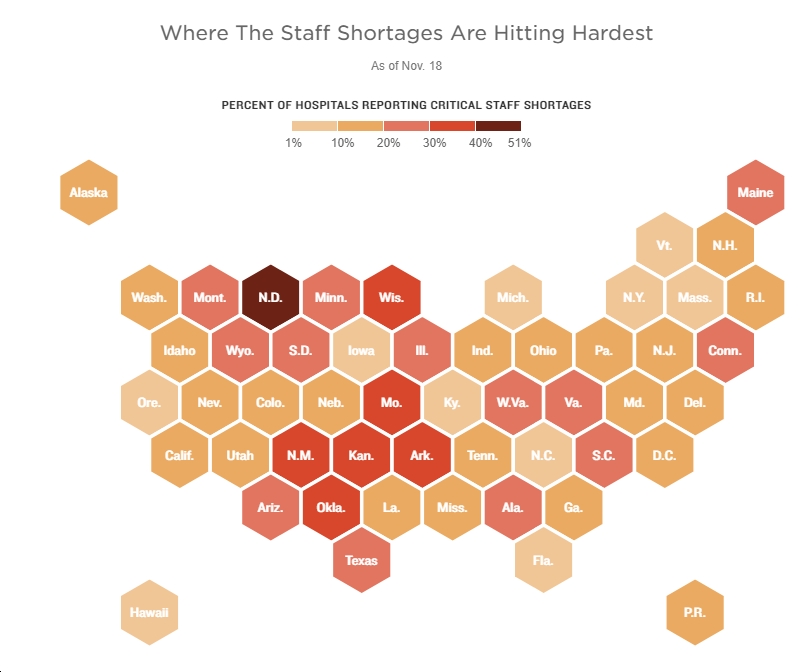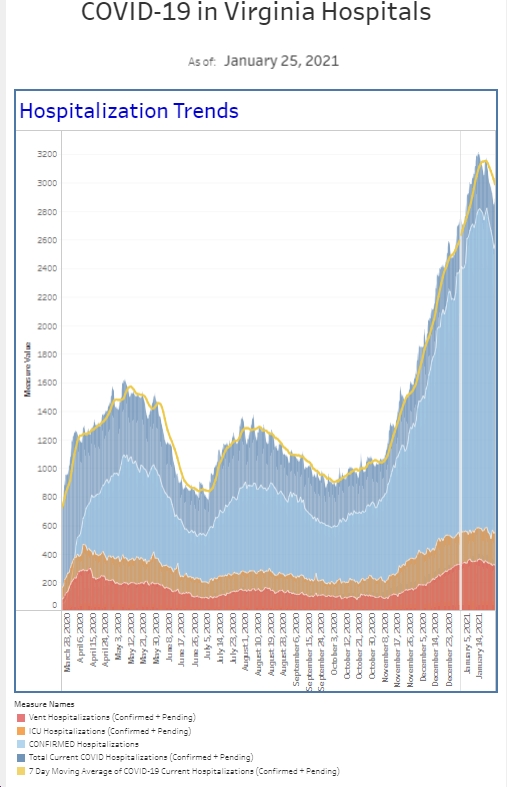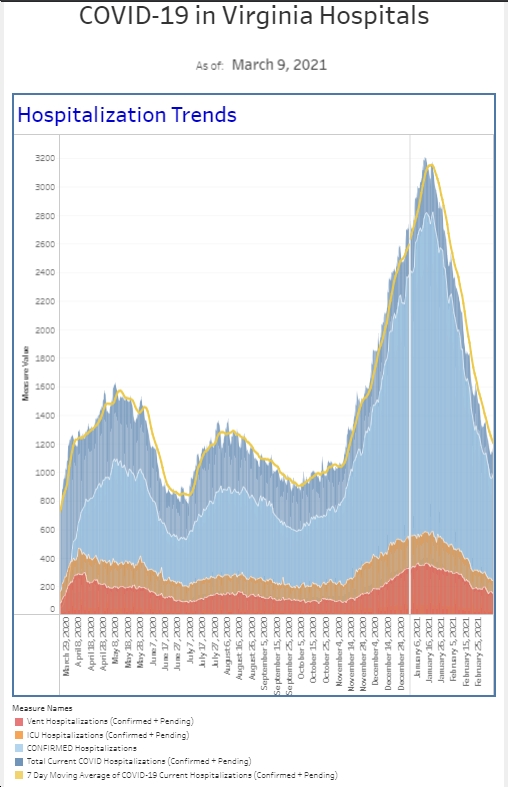Thanks as always to Dr. Mike Silverman, Chair of the Department of Emergency Medicine at the Virginia Hospital Center in Arlington, for these superb updates!
A good friend of mine got COVID this week. This Is the second time she has had it and she will tell you that it is kicking her butt this go around. And suddenly, the emergency department feels like we’re seeing an increased number of patients not only come to the ER but also require admission. Our numbers support that. Across the emergency department, we diagnosed about 30% more people with COVID this past week than 2 weeks ago. Our percent positivity rate went from about 10% to almost 14% in that same time. We’ve also seen an increase in the number of patients who are currently hospitalized as well as a bump up in the percentage of patients who require “covid isolation” in the ER and end up hospitalized. These are all important trends to be aware of and follow. The BA.4 and BA.5 variants are incredibly contagious and now cause 80% of new infections in the US. We are still trying to figure out if they are more virulent, causing more morbidity (illness).
It’s been almost 2 years since I talked much about R naught. The R naught value is the reproductive rate of the virus—meaning how many new people are infected from each person who gets infected. The original Wuhan strain was around 3.3. With the initial interventions of social distancing and masking, we watch this rate decline. The goal was to get it below 1, and eventually the virus would die out. Obviously, that never happened. Ebola and the flu from the 1918 pandemic each had R naught values of around 2. Measles has long been considered the most contagious virus with a value of 18. The delta variant increased to 5.1 and then omicron hit 13. These new subvariants (BA.4 and BA.5) are currently estimated to be about 18.6, surpassing measles and becoming the world’s most infectious virus. This is certainly cause for concern when it comes to spread. There is also a new variant strain called BA.2.75 which the World Health Organization has started to track and may make its own record. Needless to say, we should probably be reconsidering mask use, particularly indoors. Unfortunately, like many others have said, I think it is likely that none of us will evade infection forever no matter how hard we try.
Currently a second booster is recommended for those over the age of 50. This week, the president said that they may recommend a second booster for everyone in the near future. I have long anticipated that boosters will be recommended this fall just like we get an annual flu shot. The question will be about the timing. There are additional questions about how beneficial the second booster would be. We know that immunity wanes over several months. We also know that boosters increase our antibody response. But besides in the 60+ age range and for the immunocompromised, there are not a lot of studies that show the benefit of a second booster in terms of preventing hospitalization and death for healthy younger people.
On the med shortage list, we need to add diazepam (Valium). We always have med shortages that impact us in the ER. Most recently was an Ativan shortage, which we use for acute anxiety/panic as well as agitation, and more importantly alcohol withdrawal. Our alcohol withdrawal protocol changed to valium a few weeks ago and now we’ll change it again. We always have options but there is a certain comfort and knowledge for docs and nurses with Ativan (and even Valium) because we’ve used them for years. On the positive side, the IV contrast shortage has significantly improved. Our hospital supply is good. And even though the Shanghai plant shut down last weekend (for mass testing), it appears the supply around the world is recovering.
The other big news that impacts the emergency medicine world this week was a statement from the Secretary of Health and Human Services clarifying what can happen in emergency conditions to pregnant women in states that do not allow abortion. You may recall, that ER docs in many states are struggling how to treat people with an ectopic pregnancy and were losing valuable time talking to hospital attorneys to make sure it would be legally safe to intervene to save someone’s life. HHS clarified that federal law preempts state abortion laws when women have medical emergencies associated with pregnancy. The Emergency Medical Treatment and Active Labor Act, that everyone knows in the ER world as EMTALA, is at the corner of what we do is ER docs. This law states that every patient who comes to the emergency department is entitled to a medical screening exam and stabilization regardless of their ability to pay. In part, this law was created to prevent patient dumping–decades ago, some private hospitals would take uninsured patients and put them in ambulances and send them to public hospitals. But this law was really put in place to make sure that we do the right thing in a timely fashion for patients. Stabilization includes all necessary testing and intervention to rule out an emergency medical condition. This does not mean if you show up to an ER requesting an MRI for your knee pain you are going to get it. But it does mean if you come in with an acute knee injury, and the doctor is worried about you tearing your popliteal artery, you may get a CT angiogram to rule that out regardless of whether you have insurance. On the pregnancy side, for patients with an ectopic pregnancy, doctors can legally intervene to prevent the woman from dying of a ruptured ectopic (which is ultimately inevitable if the ectopic is not treated) without concern of breaking a state law. EMTALA will also impact the bleeding miscarriage patient. Of course, Texas lawmakers have already started to challenge EMTALA in court saying it steps on the states’ rights to regulate the procedure within its borders.
Coronavirus is not done with us yet.
Science matters. Get vaccinated (or your booster). Keep a mask handy.
Mike

















